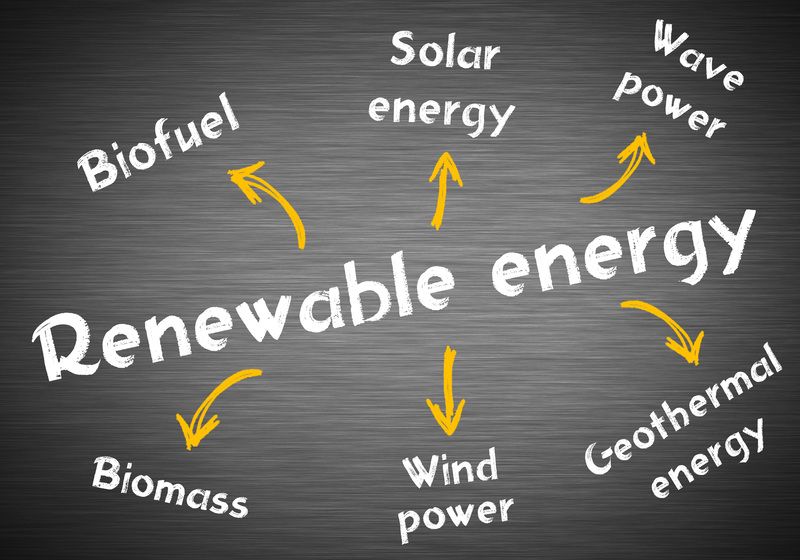Create a Greener Workplace Through Recycling: A Comprehensive Guide
In today's rapidly evolving world, sustainability has transitioned from a buzzword to a critical necessity. Companies across all industries are discovering the tremendous benefits of minimizing waste and adopting environmentally responsible practices. Creating a greener workplace through recycling is one of the most impactful strategies to achieve this mission.
By embracing a comprehensive recycling program, organizations can lower their environmental footprint, decrease operating costs, and foster a culture of responsibility among employees. This guide illustrates how to create a sustainable office through recycling, highlights its advantages, and provides actionable steps for effective implementation.
Why Promote Recycling in the Workplace?
Recycling at work isn't just about reducing landfill waste. It delivers wide-ranging benefits that impact business operations, finances, employee morale, and the planet. Here's why workplace recycling programs are essential:
- Environmental Conservation: Recycling diverts significant materials from landfills, conserving natural resources, and reducing pollution caused by waste.
- Cost Savings: Reducing waste often results in lower disposal costs and, in some cases, can bring in revenue from recycable materials.
- Corporate Reputation: Adopting green office initiatives demonstrates an organization's values, improving brand image and attracting eco-conscious partners and clients.
- Employee Engagement: Participating in green efforts fosters a sense of contribution among staff, which can boost morale and teamwork.
- Compliance: Many regions have strict waste reduction regulations. Implementing structured recycling helps companies meet legal requirements.

Implementing a Successful Office Recycling Program
To enhance sustainability in the workplace via recycling, a structured and inclusive plan is vital. Here's how to create a greener workspace by recycling effectively:
1. Conduct a Waste Audit
Before introducing new policies, assess your current waste output. Perform a waste audit to identify:
- The types and amounts of waste generated (paper, plastics, electronics, etc.)
- Types of waste most frequently disposed of
- Areas in the office producing the largest volumes of waste
This diagnostic process will uncover opportunities for waste reduction and recycling, guiding your priorities.
2. Set Clear, Measurable Recycling Goals
Define your workplace's environmental vision and objectives. For example:
- Reduce landfill waste by 50% in twelve months
- Increase paper recycling by 30% in six months
- Achieve a zero-waste to landfill office
Communicate these goals and track progress to keep everyone motivated and accountable.
3. Develop a Recycling-Friendly Layout
Easy access to recycling stations is crucial. Here's how to make recycling at work simple and convenient:
- Place labeled recycling bins in high-traffic areas: break rooms, near printers, and beside exits
- Color-code bins for different materials: paper, plastics, glass, metal, and food waste
- Use clear, easily understood signs and infographics
- Provide secure bins for confidential documents to encourage paper recycling
4. Educate and Involve Employees
For sustainable changes to take hold, every team member must understand the process and their role within it. Ways to boost engagement include:
- Kick off with a company-wide workshop or training seminar
- Distribute detailed guides, infographics, and internal newsletters outlining proper recycling methods
- Host friendly competitions or set team recycling challenges
- Encourage suggestions and feedback to continuously improve your green workplace initiative
5. Recycle More Than Just Paper
Many organizations focus solely on paper recycling in the office, but a comprehensive program should target all eligible materials:
- Electronics (E-waste): Old computers, printers, and phones contain hazardous components and should be disposed of through certified e-waste recyclers.
- Plastic and Glass: Ensure clean containers and bottles are separated and recycled where facilities exist.
- Metal: Collect soda cans, tins, and other metal waste for recycling processes.
- Batteries and Light Bulbs: Designate drop-off points for hazardous items handled by specialists.
- Ink Cartridges and Toner: Return to suppliers or recycling programs offered by manufacturers.
6. Partner with Reliable Recycling Providers
Establish partnerships with certified recycling companies or local municipalities for regular collections. They can provide:
- Appropriate recycling bins and equipment
- Guidance on sorting and contamination prevention
- Reports on quantities recycled--handy for tracking your sustainability workplace goals
7. Monitor, Analyze, and Celebrate Progress
Continuously assess the effectiveness of your program by reviewing:
- Monthly waste and recycling rates
- Employee participation
- Areas with frequent contamination or errors
- Cost savings as a result of reduced waste removal
Regularly share accomplishments and reward top-performing teams or departments. Recognizing progress encourages ongoing participation and shows your commitment to recycling in the workplace.
Beyond Recycling: Other Proactive Green Office Strategies
Fostering a green workplace means more than just recycling. Expand your sustainability efforts further with the following strategies:
- Go Digital: Transition to digital communication and document management to minimize paper usage.
- Use Recycled Products: Purchase office supplies made from recycled materials, such as printer paper, notebooks, and folders.
- Eco-Friendly Procurement: Source supplies from environmentally responsible vendors.
- Flexible Work Arrangements: Enable remote work or hybrid models to decrease energy consumption and commuting-related emissions.
- Energy Efficiency: Implement LED lighting, energy-efficient appliances, and smart thermostats to reduce your office's energy consumption.
- Promote a Reusable Culture: Encourage staff to use refillable water bottles, mugs, and lunch containers instead of single-use plastics.
- Green Clean: Adopt eco-sensitive cleaning products to improve indoor air quality and minimize exposure to harmful chemicals.
Overcoming Common Barriers to Office Recycling
Transitioning to a greener workplace through comprehensive recycling is a journey that may present challenges. Here are some common obstacles and solutions to facilitate lasting change:
Lack of Awareness
Some employees may be unfamiliar with recycling protocols, leading to accidental contamination.
Solution: Regular training sessions, clear signages, and open lines of communication keep everyone informed and motivated.
Convenience and Accessibility
If recycling bins are hard to find or confusing to use, staff may revert to old habits.
Solution: Strategic placement of labeled bins in every key area makes recycling instinctive and convenient.
Lack of Leadership Buy-In
Programs succeed when all levels of management are committed.
Solution: Leadership must set an example, participate actively, and communicate the importance of creating a greener work environment.
Contamination of Recyclables
Incorrect sorting or unclean recyclables can compromise the entire batch.
Solution: Regular education, spot checks, and feedback reduce errors and improve recycling quality.
The Impact: Long-Term Benefits of Recycling in the Workplace
The ongoing benefits of implementing an office recycling program are immense:
- Reduced Environmental Impact: Lowered greenhouse gas emissions, minimized reliance on landfill space, and preserved ecosystems.
- Financial Gains: Cost-efficient waste management and potential income from recycled materials.
- Workplace Wellbeing: Healthier, cleaner office environments and a shared sense of organizational purpose.
- Enhanced Recruitment: As more professionals desire to work for sustainable companies, green initiatives are key differentiators in hiring.
- Regulatory Compliance: Staying ahead of tightening local and federal environmental laws reduces the risk of fines and negative publicity.

Case Studies: Real-World Green Workplaces
Tech Innovators: Reducing E-Waste
A global tech firm launched a robust e-waste recycling program, installing collection stations across campuses. Old electronics are safely recycled, resulting in a 35% reduction in e-waste within two years, while employees learned the importance of proper disposal.
Marketing Agencies: Paperless Push
An agency committed to going digital, drastically decreasing their paper use. By scanning contracts and using cloud systems, they reduced paper waste by over 60% and inspired similar efforts in their client base.
Law Firms: Confidential Document Recycling
Law offices produce large quantities of sensitive documents. By introducing locked recycling bins and employing secure recycling services, firms ensure confidentiality while supporting their green office vision.
Building the Future: A Call to Action
Creating a greener workplace through recycling is not a one-time fix but an ongoing commitment to positive change. Every effort, big or small, contributes to the collective movement towards sustainability. As businesses adapt to the 21st-century challenges, recycling remains an essential pillar for environmental, social, and economic welfare.
Now is the time to take action: Evaluate your current practices, involve your team, and build a workplace that leads in both productivity and planetary health.
Together, we can transform every workplace into a beacon of sustainability--one recycled item at a time.